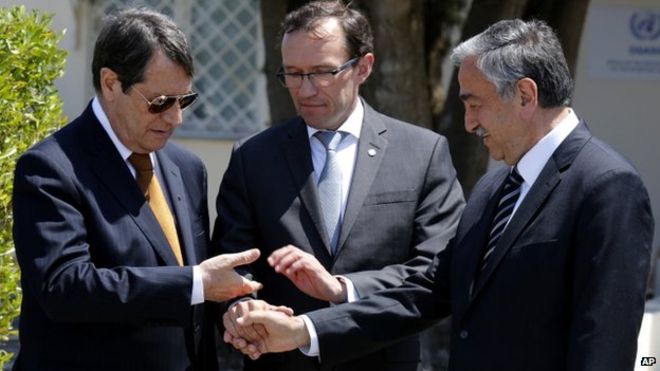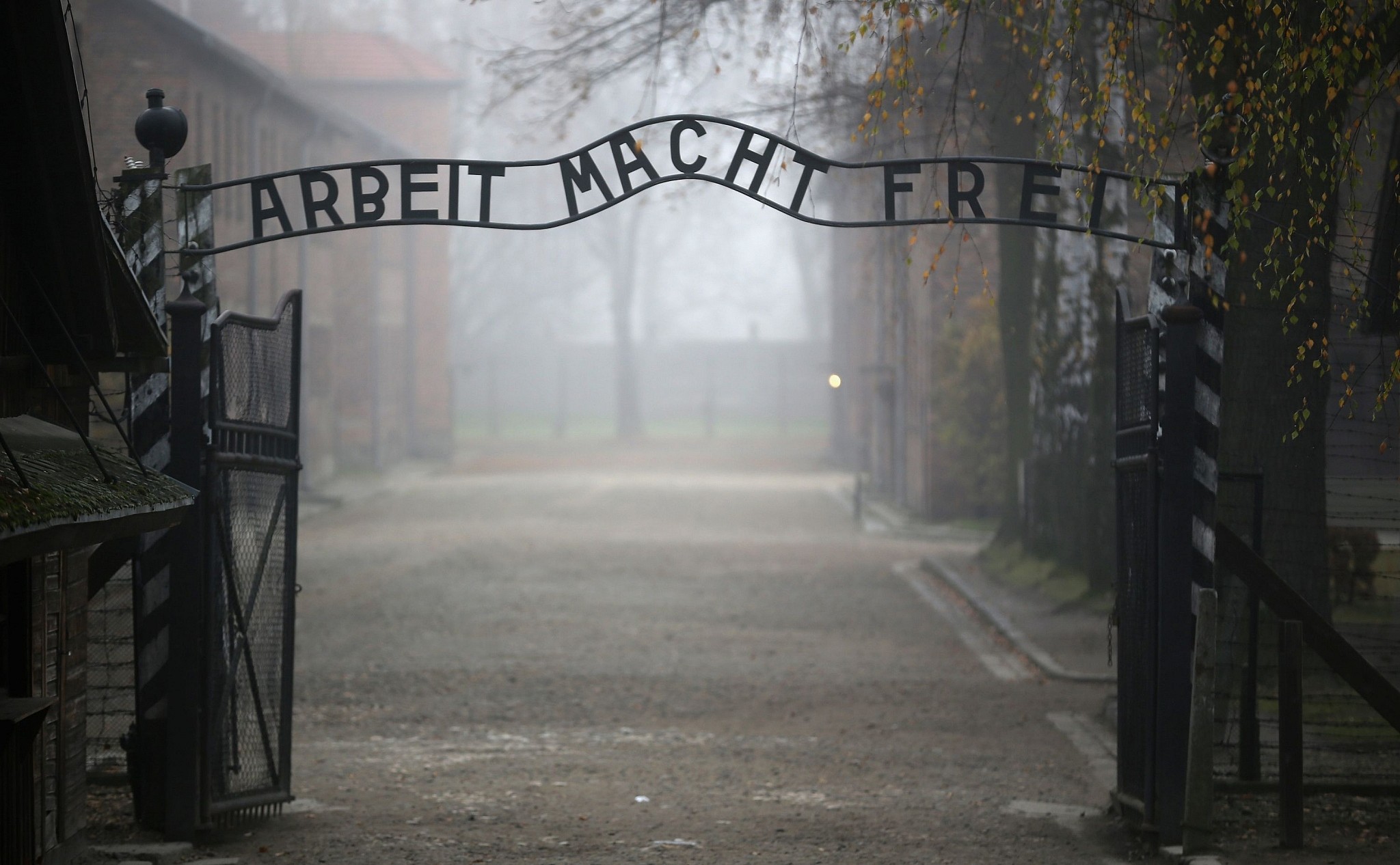
When the latest round of talks began between the parts in Cyprus, there were many colleagues and friends who were swept along with enthusiasm. ‘This time, this is it!’ was the phrase I had heard more than a year ago. My response was simple: ‘Do not ever get carried away. The issue is about Cyprus, and remember: what we have seen so far, will shed light on what will, or rather, what will not happen. Wait and see till it collapses again.’
These bittersweet conversations took place in late 2015 and early 2016 and here we are.
Because this is Cyprus. Land of ‘negotiation for negotiations’ sake’ land. Island of ethnocentrism; a laboratory of incurable nationalisms. A paradise for cynics.
My optimistic friends were victims of their naivete. They had not taken into account that momentum had changed. Even though Cyprus had two years ago caught a momentum by the choices of Anastasiades and Akıncı – two seemingly rational leaders – they had miscalculated two elements: An increasingly militarist and populist Erdoğan – who forged an alliance with ultra-nationalist MHP for an autocratic rule – and the fierce nationalist forces in Greek Cyprus that stood ready to find a pretext to undermine a rapprochement.
Time worked in their favor.
As Turkey entered its most unstable period ever in its modern history after the failed coup and emergency rule, with referendum in horizon; Anastasiades had to take elections into account as valuable time was wasted in a typical Cypriotic slow-motion mood. And, enter the counter-forces, we are now at a dead-lock.
Following rumours of annexation of North Cyprus into Turkey – an idea surely looks attractive to Erdoğan, who saw Putin succeed with Crimea affair – the Greek Cypriot ‘unionists’ with mainland Greece saw a momentum to rise up and have Enosis (unification) decision decades ago commemorated in schools, and there you had the deja vu of the impasse that we are so familiar in Cyprus conflict.

As Turk Cypriot leader Akıncı seemed ‘surrounded’ by the AKP figures and rhetoric lately, with Turkish troops’ withdrawal not even something to think of, President of Cyprus, Nicos Anastasiades, sent a strong message to both Turkey and Turkish Cypriot leader Mustafa Akinci that the majority cannot be equated with the minority.
In an interview with Phileleftheros and The Cyprus Weekly, Anastasiades said: “Their positions to insist that essentially the minority will make the decisions and the majority will simply obey cannot be justified”. He added adding that they need to understand that theirs is an unprecedented phenomenon. The rotating presidency, in Anastasiades’ eyes, has also been shelved stressing that for the present it is not under discussion.
“The issue of a rotating presidency is out of the question right now,” adding that “to be able to accept a discussion one should know concessions that the other side will make so as not to create conditions that increase the concerns of the Greek Cypriots, especially in terms of functionality and sustainability.”
“It’s unimaginable to discuss the four chapters, as well as territorial adjustments, to address their concerns and when the time comes for them to demonstrate political will in seeking a peaceful coexistence they ask for more,” said Anastasiades
Anastasiades believes the break in negotiations has nothing to do with parliament’s passing of the ‘enosis day’ amendment to school curricula but Turkey’s unwillingness to discuss the issues of security and guarantees.
At the same time, he is hopeful that negotiations will commence after April’s constitutional referendum in Turkey where Turkish President Tayyip Erdogan has gained the support of the extremist nationalist group, Grey Wolves who may pull support if they feel that Turkey is giving concessions on Cyprus.
To this end, Anastasiades believes that even if negotiations restart before the referendum no significant progress will be made because as he says “Turkey controls Akinci, whether he wants to admit it or not.”
Of course, he would not admit that he is controlled by his concerns that he also is sieged by his nationalists on the southern side of the island. But he is.
‘Maybe it’s a good thing that we have a crisis in the Cyprus talks now and not later’ wrote my colleague Nikos Konstandaras in Kathimerini lately.
‘If the negotiations between President Nicos Anastasiades and Turkish-Cypriot leader Mustafa Akinci can withstand today’s difficulties, then perhaps the Cyprus issue will be on its way toward resolution. If the negotiations cannot overcome the recent decision by the Parliament to have schools commemorate the 1950 plebiscite calling for union with Greece, it’s best we know from now that the process was leading nowhere. The past is history, but it is up to today’s leaders to overcome obstacles and to lead Cyprus toward a better future – or to confirm that the consequences of the Turkish invasion in 1974 are permanent and inviolable.’
‘We often see’ he went on, ‘extremists determining developments in societies with their demands and hyperbole. In most cases, though, the responsible, centrist parties try to resist. So how can we interpret the ease with which so many parties in the Cypriot Parliament sided with the extremist ELAM with its two MPs? Did they not see that in other countries whenever mainstream parties adopt the language and methods of extremists it is the latter who gain, as they gain credibility among more citizens? Or do they think that tension between the island’s two communities serves their interests? In any case, the breakdown in trust between Anastasiades and Akinci is a great loss and it is difficult to imagine how either of their communities will benefit from this.’
Respectfully, I think that we should forget Cyprus as sincerely engaged in finding a solution. This was, if ever, the moment. It was a point both sides could get as close to each other as more than ever. But it was demolished.
There are obvious reasons for this:
- Both sides’ leaders do not have any idea of rational conflict resolution. Even if they do, they do not properly engage in it. It is a cultural phenomenon that makes Cypriots the strongest enemy of themselves.
- As a result of disengagement, sides did not overcome mistrust.
- Even if Akıncı brought in a new spirit and popular will pro-solution, it was damaged along the way by Turkish government which, due to Erdoğan’s slippery manner of chainging domestic alliances, returned to extremely old-fashioned, problem-oriented approach that froze all the issues that should be left open to negotiations.
- Two elements countered the positive dynamics: Nationalism is not strong in Turkish part, but corruption and mafia structures are. The current status quo serves many dirty interests. In the Greek south, political resistance against unification and ethno-centrism has remained dominant. Together, they once more won.
- Success in Cyprus talks always assumed that there would be a minimal bilateral confidence between two guarantor powers – Greece and Turkey. It did not happen, on the contrary, tensions grow, because of Turkish nationalism once more hiking.
So, where are we? Nowhere. If Cyprus made cynics out us, it was justified. I had told my friends that the issue was a matter of global consensus, it was far too sensitive to be left to islanders themselves. But the current conjunture leaves no ground for hope.
The only hope, if ever, would be to keep the conflict frozen, no matter for how long.
There is no way current constellation of leaderships will pay enough attention to the island. There are far more serious issues at stake.
Forget Cyprus.



